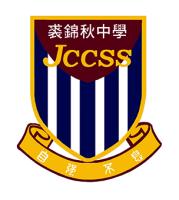| Language Policy |
In English, we set up an English learning environment in order to increase the opportunity of students encountering English. We adopt a wider approach of MOI policy with the help of other non-English subjects to organize activities and language learning opportunities for the students. Our school has partnered with Harrow International School Hong Kong to provide free an English Drama Course to broaden students' horizons.<br>Form One students had drama classes at Harrow International School, and English was integrated into various science and humanities subjects. English writing, solo verse speaking and debate workshops were also organised to comprehensively enhance pupils' English abilities. <br>With regard to Chinese Language, the curriculum focuses on reading training. By adding Chinese cultural elements, student are encouraged to cultivate their reading habits and enhance cultural literacy in order to boost up their level of Chinese.<br>Moreover, Chinese Week and Putonghua Week are held annually. In the annual Hong Kong School Speech Festival, our school’s Cantonese and Putonghua groups have won numerous awards. <br>The Chinese language curriculum uses worksheets and monthly reading themes to broaden students' horizons and cultivate an interest in reading. The School's Putonghua curriculum is standardised along the lines of the Putonghua Proficiency Test. Individual tutorials and Cantonese classes are available for pupils in need. |
| Learning and Teaching Strategies |
With the establishment of the streaming system, the students’ learning diversity can be addressed. The school can clearly direct different subjects to formulate their assessment policies and procedures. The Study Council helps different subjects to analyse their tests and examination results and to inform the renewal of the school curriculum. The school promotes different means of IT learning with various learning tools in order to raise the learning and teaching efficiency and to strengthen students’ self-learning ability. Moreover, the school has started the STEAM programme and Maths Olympiad course. |
| School-based curriculum |
1. Electives: 2X and 3X. Students may choose 1 elective from each 2X group (4 subjects in each X group). It is more efficient to take care of the top and bottom students. The NSS curriculum can let students choose 2 electives freely. S.4, S.5 students may choose the third elective.<br> 2. Curriculum highlights: Curriculum highlights: To cater the diverse needs, from S.1 to S.6, curriculum difficulty is set based on students ability. Students are divided into small classes to study Chinese, English and Mathematics respectively. Students may also apply to Network Schools and Applied Learning subjects. |
| Approach to Catering for Learner Diversity |
1. The four core subjects put students in groups according to their abilities in order to cater for their learning diversities and for the purpose of carrying out remedial and enhancement programmes. <br>2. An educational psychologist and two stationing social workers are available at school to take care of the students with different educational needs. We have a 'JCC Buddies' to help junior students adapt to the new environment while the senior form students can train their leadership skills. <br>3. Teachers of each subject will sit together regularly to have collaborative lesson planning to design the teaching aids and revise the curriculum in order to cater for the different learning abilities of students. Also, it is aimed to improve teaching and learning efficiency. |
| Approach to Integrated Education |
The school is fully committed to implement social integration under the support of the Education Bureau. Our Students Supporting Team, leaded by Special Educational Needs Coordinator, is founded to support students with special learning needs with a "Whole School Approach". Through the use of CEG, LSG and community resources, students are provided with timely, appropriate and diversified support services to enhance their learning effectiveness and help them integrate into campus life. |
| Education Support for Non-Chinese Speaking (NCS) Students |
|
| Home-School Co-operation |
The school lays emphasis on home-school co-operation. Activities like Salute to Teachers Day, parents’ workshops, child parent volunteering services and interest classes, child parent picnic and social services are organized to give a better environment for students to grow up. |
| School Ethos |
The students are decent, friendly, courteous and tidy. Their behavior and attitude towards learning is consistently getting better. |
| School Development Plan |
School theme: Love to learn, Be Positive, Blossom in life.<br><br>School major concerns in 2021-2024:<br>1. to establish reading atmosphere, adopting multi learning models, deepening learning strategies.<br>2. to establishing life goals, enriching life experience, living a positive life.<br>3. to enhancing professional development, gathering positive energy, sharing and learning with peers.<br><br> |
| Teacher Professional Training and Development |
The professional development team of the school arranges workshops for teachers regularly. The school has joined the School-based Support Programmes of the EDB, hoping that the school can constantly improve its learning and teaching efficiency. Furthermore, the school is encouraging teaching staff to participate in different development programmes and workshops organised by outside organisations. |
| Life-wide Learning |
There are four houses and around 30 school clubs ranging from volunteering services to sports, which are organised to provide a chance for students to become all-rounded. All Form One students need to learn a musical instrument led by professional music instructors, participate in one of the four discipline teams and learn one sport or art. |
